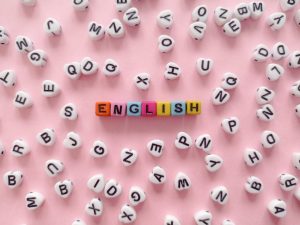As a seasoned IB educator, I’ve had the privilege of guiding numerous students through the intricacies of the IB DP Math curriculum. Today, I’m excited to illuminate two critical components: Math Applications and Interpretation (AI) and Analysis and Approaches (AA). These elements are central in IB but different in their objectives and execution.
What Is IB Math Applications and Interpretation?
IB Math Applications and Interpretation, commonly called IB Math AI, is for students who thrive on constructing mathematical models and tackling real-world problems through the prism of statistics. In my opinion, this course is exceptionally suitable if you are drawn to interdisciplinary studies that connect mathematics with other areas like the social sciences, natural sciences, and even specific business sectors.
From my extensive experience as an IB instructor, I’ve noticed that IB Math AI isn’t just about learning to calculate; it’s about applying calculations to real-life scenarios. It equips students with the ability to analyze complex data sets, identify patterns, and make informed decisions based on statistical evidence. Here are several essential aspects of the IB Math AI curriculum:
- Statistical Analysis. This part is the backbone of the Math AI course, focusing on data interpretation, probability, and using statistics to solve problems.
- Mathematical Modeling. Students learn to construct models from complex real-world phenomena, which can be used for prediction and decision-making.
- Technology Integration. The course heavily relies on technology, from graphing calculators to software that can handle statistical data, enhancing the learning experience and relevance to modern applications.
- Project-Based Learning. The Internal Assessment project is a significant curriculum component encouraging students to apply their knowledge to a unique research question.
Having interacted with several Math AI classes, I can attest to the dynamic nature of the classroom environment. It’s often centered around project-based learning, which fosters a highly engaging and collaborative atmosphere. Teachers in this course generally encourage students to engage with statistical software and graphing calculators, making the learning interactive and practical.
All About IB Math Analysis and Approaches
IB Math AA is for students with a profound interest in pure mathematics. It includes higher-level calculus and algebra, crucial for academic and career paths in engineering, physics, and advanced economics. As someone heavily involved in the IB community, I can confirm that this course improves students’s analytical and abstract thinking abilities, preparing them for the demands of higher education and research-intensive fields.
From my extensive experience, I’ve found that the core curriculum of IB Math AA actively challenges students to deal intensively with mathematical concepts. Here are several critical components of the IB Math AA curriculum:
- Advanced Calculus. Students learn complex calculus topics, including differential and integral calculus, essential for technical and scientific fields.
- Higher Algebra. This section focuses on abstract algebra and the theory of equations, which underpin many advanced studies in mathematics.
- Geometric Analysis. This involves an in-depth study of shapes, vectors, and spaces — critical for fields like architecture and computer graphics.
- Logical Reasoning. Emphasizes developing strong reasoning skills crucial for problem-solving in any mathematical context.
In contrast to AI, the classroom experience in Math AA is heavily focused on theoretical concepts. Students spend significant time proving theorems and solving complex problems, essential for developing a robust understanding of pure mathematics. As I know from observing these classes, such rigorous training prepares students exceptionally well for university-level math and science courses, where these skills are indispensable.
Furthermore, the focus on abstract theory over practical application distinguishes IB Math AA from its counterpart. According to general IB criteria, this subject prepares students to face complex mathematical issues and encourages continual learning and investigation in mathematics.
More Topics to Read:
- How Can I Write a Good IB Internal Assessment?
- Mathematics: Applications and Interpretation IA Topics
- Mathematics: Analysis and Approaches IA Topics
- What Exactly Is an Internal Assessment in the IB Curriculum?
- Computer Science IA Topics for HL and SL Students
- Information Technology in a Global Society (ITGS) IA Topics
- How to Write Math Internal Assessment

Comparing IB Math AI and AA
In my many years of involvement with the International Baccalaureate, I’ve guided countless students through the decision-making process between IB Math AI and Math AA. Both courses offer unique opportunities and challenges, and understanding these impacts a student’s academic and future career paths. From my experience, here’s a closer look at how these two courses stack against each other.
Curriculum and Focus
From what I’ve observed, the IB Math AI curriculum is targeted at students interested in mathematics, which directly applies to real-world settings and statistical difficulties. In contrast, IB Math AA is perfect for those who enjoy researching pure mathematics and abstract thinking.
Assessment Methods
The two courses also differ significantly in terms of assessment. I know from the IB examination formats that AI assessments often include project-based components and papers emphasizing statistical analysis and real-world application. On the other hand, AA assessments focus more on problem-solving and theoretical proofs, which can be pretty challenging but are superb for developing rigorous mathematical reasoning.
Suitability Based on Student Strengths and Interests
Choosing between AI and AA should also consider a student’s strengths and interests. In my opinion, students who enjoy applying mathematics practically and can handle large data sets may find AI more appealing and directly beneficial. Conversely, those fascinated by numbers, patterns, and abstract concepts might find AA more satisfying and aligned with their academic and career goals.
Preparation for Higher Education
AI and AA provide excellent preparation for university but in slightly different ways. From my discussions with university admissions officers, AI students are often seen as more versatile because of their experience with applied mathematics, which is increasingly valuable in diverse fields. AA students are usually very well-prepared for specialized academic tracks that require foundational knowledge in mathematics.
Buy IB IA with Full Confidentiality!
Grab your IB IA with full privacy guaranteed.
Our no-leak policy keeps your details 100% secure.

Decision Time: IB Math AI or AA?
Deciding between IB Math AI and Math AA can seem daunting, but it’s a crucial choice that can significantly shape your academic and career path.
Consider Your Future Goals
First and foremost, think about your long-term academic and career goals. In my opinion, if you envision a future in fields like engineering, physics, or mathematics, IB Math AA is likely the better choice. This course emphasizes a deep theoretical understanding of mathematical concepts, which are essential in these areas. On the other hand, if you’re drawn to fields where mathematics is applied to solve practical problems — such as in economics, environmental science, or even technology — then IB Math AI would serve your interests well.
Assess Your Strengths and Preferences
Your strengths and learning preferences are also crucial in this decision. As I know from observing countless students, those who enjoy abstract reasoning and complex problem-solving often thrive in Math AA due to its focus on pure mathematics and rigorous logical challenges. Conversely, if you find real-world math applications more engaging and are comfortable with statistical and graphical analysis, Math AI will likely be more enjoyable and rewarding.
Consult with Teachers and Advisors
Engaging in discussions with your teachers and academic advisors can provide invaluable insights. These professionals can offer perspectives on how well each course aligns with your skills and academic record. From my experience, speaking with educators who know your academic style helps clarify which course will better suit your needs and help you succeed.
Reflect on University Requirements
If you have specific universities or programs in mind, it’s wise to consider their prerequisites. Some programs, especially those heavily focused on theoretical and applied sciences, may prefer applicants with a background in Math AA. In contrast, programs that value analytics and practical problem-solving might appreciate the skills developed in Math AI.
Consider the Workload and Your Other IB Subjects
Finally, consider how the workload meshes with your other IB subjects. Math AI and AA are demanding, but the type of work varies. Math AA often requires more time on abstract theoretical learning and complex problem-solving, which can be intensive if paired with other heavy subjects like Physics HL. Math AI, while also challenging, focuses more on projects and applied math, which might provide a better balance depending on your other courses.
IB Math AI and Math AA: University Requirements
From my years of experience as an IB educator and advisor, I’ve observed that universities often have specific preferences based on the focus of their programs. Here’s how each course aligns with various university requirements. In my opinion, it’s essential to understand the nuances of how higher education institutions perceive each course:
- Engineering and Physical Sciences. These programs usually prefer IB Math AA because they focus on higher-level calculus and advanced algebra. Such mathematical rigor is critical for understanding the complex theoretical concepts encountered in these fields.
- Economics and Business Studies. Many of these faculties favor IB Math AI because of its emphasis on statistics and real-world applications, which are integral to economic modeling and business analytics.
- Life Sciences. Depending on the specialization, either course could be appropriate, but AI is often more beneficial for fields that use statistics extensively, like epidemiology or environmental science.
- Liberal Arts and Humanities. For programs that require a quantitative component but not at an advanced level, IB Math AI is generally sufficient and often recommended due to its practical approach to mathematics.
From my experience, students should consider their academic and career goals and the specific mathematical demands of their intended university programs. As I know from interacting with admissions officers, a well-informed choice between IB Math AI and AA can strengthen your application, particularly if the course aligns closely with the program’s focus.
Conclusion
To sum up, IB Math AI and IB Math AA offer robust pathways for those interested in mathematics. Depending on your interests and career goals, one will suit you more. Remember, the right choice will prepare you for future studies and fuel your passion for mathematics. Choose wisely and let your interests guide your ideal IB math course. Also, contact our experienced IB writers from Buy IB IA Service if you need help with Math Internal Assessment.

Nick Radlinsky
Nick Radlinsky is a passionate educator, marketer, and management expert with over 15 years of experience in the education sector. After graduating from business school in 2016, Nick embarked on a journey to earn his PhD, fueled by his dedication to making education better for students everywhere. His extensive experience, beginning in 2008, has made him a trusted authority in the field.
Nick's groundbreaking article, published in Routledge's "Entrepreneurship in Central and Eastern Europe: Development through Internationalization," showcases his keen insights and commitment to improving the educational landscape. Guided by his motto, "Make education better," Nick's mission is to simplify students' lives and promote efficiency in learning. His innovative ideas and leadership have helped transform countless educational experiences, setting him apart as a true pioneer in his field.




